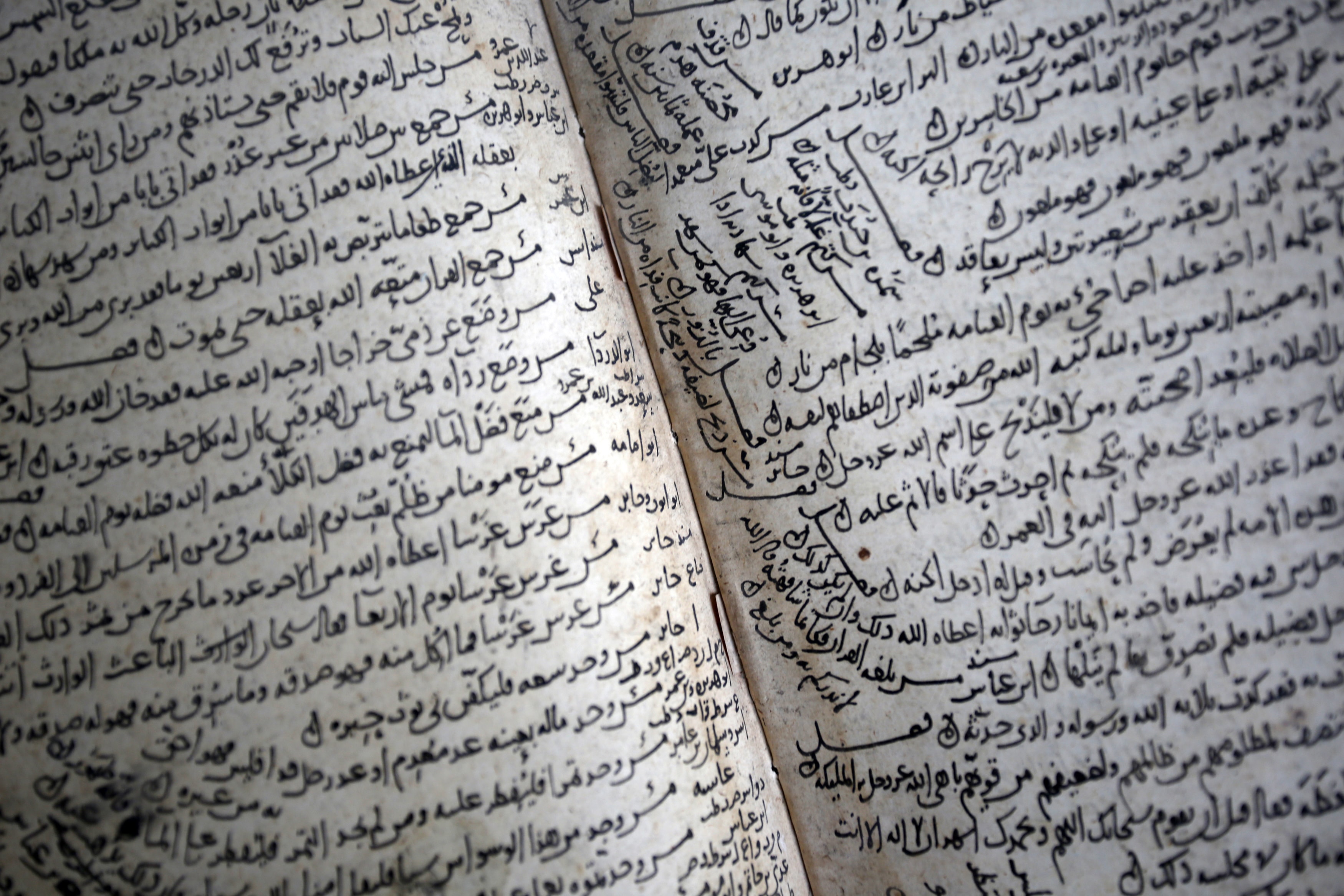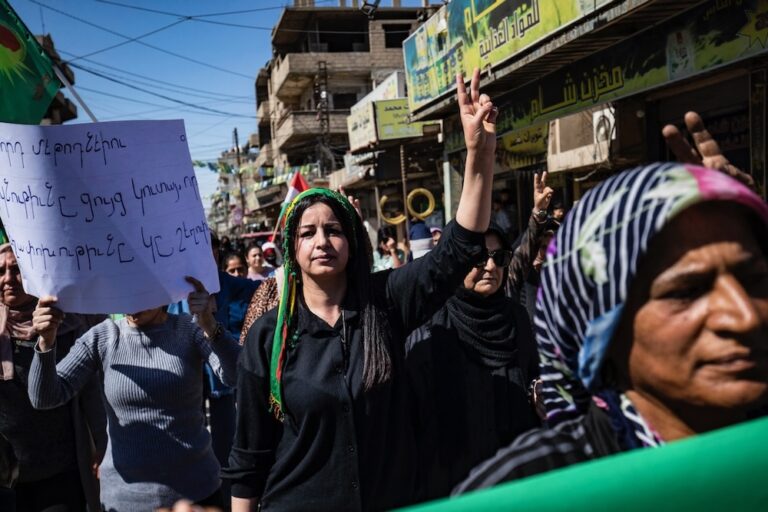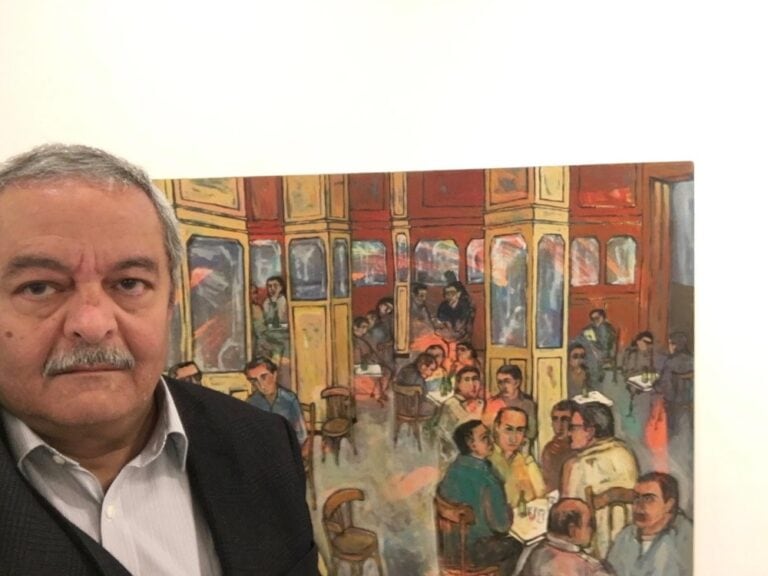To mark World Poetry Day, PEN is focusing on a number of cases which are emblematic of the threats faced by poets around the world and highlighting their continued contribution to freedom of expression. The cases are from Kazakshtan, China, Qatar, Cameroon and Mexico.
On World Poetry Day, PEN highlights challenges and dangers facing poets and writers around the world.
21 March marks World Poetry Day, first declared by UNESCO in 1999, to ‘support linguistic diversity through poetic expression and to offer endangered languages the opportunity to be heard within their communities’.
PEN International and PEN Centres around the world have long campaigned on behalf of poets at risk and for the protection and promotion of minority languages. In 2011 PEN’s Translation and Linguistic Rights Committee developed the Girona Manifesto on Linguistic Rights – a ten point document designed to be translated and disseminated widely as a tool to defend linguistic diversity around the world.
PEN International’s Writers in Prison Committee works on behalf of persecuted poets, writers and journalists worldwide, monitoring between over 1000 cases across the globe each year. The WiPC mobilises the wider PEN community to take action through its Rapid Action Network alerts, targeted regional campaigns, and by utilising PEN’s consultative status with the UN to engage in advocacy at an international level.
To mark World Poetry Day, PEN is focusing on a number of cases which are emblematic of the threats faced by poets around the world and highlighting their continued contribution to freedom of expression.
Aron Atabek – Kazakhstan
Aron Atabek is a poet, journalist and social activist. He has written several books of poetry and prose inspired by Tengriist spirituality and was the founder, in 1992, of the monthly newspaper Khak (The Truth). Atabek was awarded the literary “Almas Kylysh” prize in 2004 and the Freedom to Create “imprisoned” prize in 2010.
Atabek has been in prison since 2007 and has spent much of his incarceration in solitary confinement. In December 2012, following the online publication of The Heart of Eurasia, a critique of President Nursultan Nazarbayev’s regime (written in prison by Atabek and smuggled out for publication), the poet was sentenced to spend two years in solitary confinement at a high security prison in Arkalyk. Whilst in solitary detention, Atabek was kept in extremely harsh conditions: he was denied access to natural light, communication with other prisoners, writing materials and telephone calls; family visits were severely restricted, resulting in only one successful visit between 2010 and the current date; he was kept under constant video surveillance. PEN has continuously campaigned for Atabek’s removal from solitary confinement to a general cell and has been working with Atabek’s son and a small group of translators to bring public attention to Atabek’s poems.
Liu Xia – China
Liu Xia is a poet, artist, and founding member of the Independent Chinese PEN Centre. She has been held in her Beijing apartment without access to phones, Internet, doctors of her choice, or visitors since her husband, Liu Xiaobo, was named the winner of the Nobel Peace Prize in October 2010. In recent months, there has been increased concern regarding the mental health of Liu Xia, who is reportedly suffering from depression. PEN has long protested against the on-going extra-judicial detention of Liu Xia and has continuously campaigned for her immediate and unconditional release. Read Xia’s poetry.
Mohammed Ibn al-Dheeb al-Ajami – Qatar
Mohammed Ibn al-Dheeb Al-Ajami was sentenced to life imprisonment on 29 November 2012 on charges of “inciting the overthrow of the ruling system” (Article 130 of the Penal Code) and “criticising the [then] Amir and the Crown Prince [now Amir]” (Article 134) in his poetry. On 25 February 2013, his sentence was reduced to 15 years. Following the court’s latest ruling, Al-Ajami’s only legal recourse is to be pardoned by the Amir.
A known poet in the Gulf and a father of four, al-Ajami was a literature student at Cairo University in 2010 when he recited a poem in his apartment among friends, in which he criticized the former Amir Sheikh Hamad Al Thani. The poem was in response to a poem by a fellow poet, but one of the students in the apartment recorded al-Ajami and uploaded the reading on YouTube. According to al-Ajami’s lawyer Dr. Najeeb al-Nuaimi, a former justice minister in Qatar, the poem was spoken in a private setting and thus violated no law. Another of al-Ajami’s poems – Tunisian Jasmine – which expressed support for the 2011 uprising in Tunisia and criticized other Arab governments was circulated on the internet.
Al-Ajami is detained in Doha’s Central Prison, where he has been held in solitary confinement since his arrest. On 23 October 2013 representatives from PEN were prevented from visiting him despite having been told their visit had been approved. PEN has continuously protested Al-Ajami’s detention and considers it to be a violation of his right to freedom of expression.
Take action for Mohammed al-Ajami.
Enoh Meyomesse – Cameroon
Poet, author and founding member of the Cameroon Writers’ Association, Meyomesse was arrested on 22 November 2011 and initially charged with attempting to organise a coup, possessing a firearm and aggravated theft. Meyomesse denied all charges and maintained that he had been arrested because of views expressed in his writings, and for his political activism. Meyomesse was a candidate for the presidential election on 9 October 2011, under the banner of the opposition party United National Front (UNF).
Since Meyomesse’s arrest, there were serious concerns about the charges against him, and also about his treatment in prison, which at times amounted to torture. There were reports that the prosecution had fabricated evidence, and that Meyomesse was denied proper legal representation for the first few months of his incarceration. By June 2012, all of the charges against Meyomesse had been dropped, however in July 2012 the WiPC learned that a judge had ordered the extension of Meyomesse’s detention so that the prosecutor could ostensibly search for evidence against the writer. Meyomesse was subsequently charged with being an accomplice to theft and illegal traffic of gold and, after numerous procedural delays was found guilty as charged on 14 December 2012. The writer had already spent 13 months in prison before being sentenced. PEN International has long protested the arrest and imprisonment of Meyomesse and continues to call on the Cameroonian authorities to quash the conviction and to release him immediately and unconditionally. To read Meyomesse’s poetry and to join English PEN’s campaign for translations of Enoh Meyomesse’s work click here.
Take action for Enoh Meyomesse.
Susana Chávez Castillo – Mexico
Susana Chávez, a prominent poet and women’s rights advocate, was found murdered in the border town of Ciudad Juárez on 6 January 2011. Her body found strangled, with one of her hands cut off, was only identified five days later. Chávez (born 5 November 1974) had been highly vocal in calling for justice for the hundreds of women killed in the Juárez area since the early 1990s, both as an activist and through her writings; in particular taking part in numerous poetry readings which she dedicated to the murdered women.
In March 2013, PEN International and Guadalajara PEN submitted a shadow report on violence and impunity in Mexico to the Office of the High Commissioner on Human Rights as part of the United Nations’ Universal Periodic Review of Mexico’s human rights record. In 2012, PEN International published the anthology Write Against Impunity, a literary protest highlighting the escalating violence against journalists, writers and bloggers in Latin America – in particular Mexico, Honduras and Brazil – and the impunity enjoyed by those who commit these crimes. A number of contributors to the anthology dedicated poems to Chávez’s memory, including Carmen Boullosa’s poem Tongue, and Claribel Alegría’s poem Impunity.
Take action for Susana Chávez.
Related Content
In poetry, we are made human – Alfred Msadala, Malawi PEN President
PEN International Case List

Susana Chávez Castillo (Mexico), Aron Atabek (Kazakhstan), Liu Xia (China), Mohammedal-Ajami (Qatar), Enoh Meyomesse (Cameroon)PEN International



